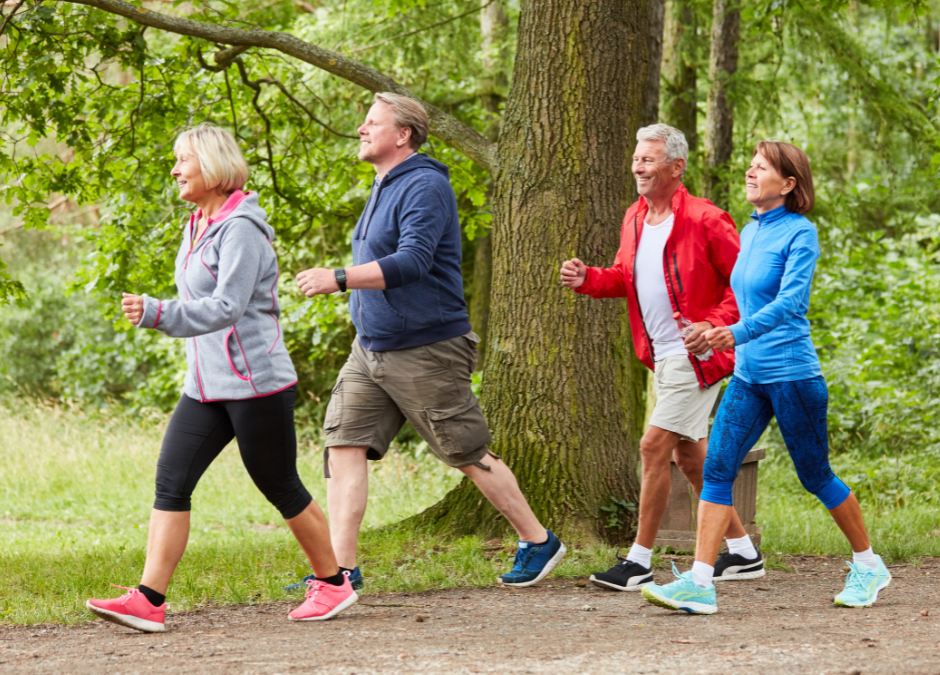There is good research showing that as we get older, consistent exercise helps slow down some of the problems that may be associated with ageing process. That’s because exercise has benefits for all the systems in our bodies. It even helps stimulate the brain and prevent cognitive decline.
Exercise is important at any age. But once you’re in your 50’s, it’s good to think about maintaining the strength and fitness from your younger years. Conversely, getting into good exercise habits for the years to come is a good idea if you’re still young.
Exercise and the pelvic floor muscles
Physical activity helps keep the pelvic floor muscles working. We encourage people to participate in regular exercise as a part of their pelvic floor rehab programmes. This is because the pelvic floor muscles respond to the movement we do. They are part of the core and are working all the time.
If you have pelvic floor problems or are unsure what type if exercise may be appropriate for you, we’re happy to help.
Exercise and reduced risk of some health conditions
As we age, the body’s immune response can reduce. This means older people may be more likely to catch coughs and colds, and other diseases. But the good news is that exercise can help.
For instance, studies have shown common conditions associated with aging such as arthritis, heart disease, and diabetes all benefit from regular activity.
Additionally, physical activity helps manage high cholesterol. This in turn reduces the risk of heart disease and stroke.
Exercise and the brain
Participating in exercise can help improve memory, energy levels, attention and mood. Regular cardiovascular exercise (anything that raises the heart rate), increases blood flow around the body. This results in a boost in overall wellbeing, better sleep, and better overall health.
Exercise and reduced likelihood of falls
Improving muscle strength, co-ordination and flexibility can help improve balance and reduce the risk of falls. According to the World Health Organisation “regular exercise can reduce the risk of having a hip fracture by up to 40%”.
Exercise and longevity
We know that regular physical exercise helps reduce mortality and prolong life. Recent research suggests exercise may slow aging of the brain by up to ten years.
Musculoskeletal disorders are the leading cause of disability in New Zealand. With lower levels of physical activity, obesity, and an aging population, their impact will only increase. Even doing gentle exercise such as walking or swimming can help. .
Ministry of Health recommendations for healthy ageing
Spend more time being physically active and less time sitting down
Any level of physical activity is better than doing nothing!
- walking to the shops
- vacuuming
- gardening
- washing the car
At least 30 minutes of aerobic physical activity on 5 days each week
This means exercise that increases heart rate and breathing, such as:
- dancing, cycling, brisk walking, swimming etc
Two sessions of resistance exercise and three sessions that help with balance (in addition to aerobic activity)
- resistance exercise (for muscle and bone strength) could include things like:
- carrying shopping
- standing up and sitting down repeatedly
- weight training
- flexibility exercise (for easy movement) could be:
- modified tai chi
- stretching
- gardening
- yoga
- pilates
- balance exercise (to prevent falls), such as:
-
- bowls
- modified tai chi
- standing on one leg
- yoga
Things to consider if you are new to exercise
- Speak to your doctor before starting or increasing physical activity
- Start off slowly and build up to the recommended daily physical activity levels
Need help or advice to get started?
We are happy to help you, and to give advice on exercise that is appropriate for your pelvic floor function. If you have pelvic floor symptoms (eg bladder or bowel control problems, pain, prolapse) we’re happy to help so that you can do the exercise you want to.
Further information
Perimenopause – click here
Menopause and your pelvic health – click here
The pelvic floor – click here
References
https://www.nzseniors.co.nz/funeral-insurance/discover/exercises-to-stay-healthy-at-any-age

